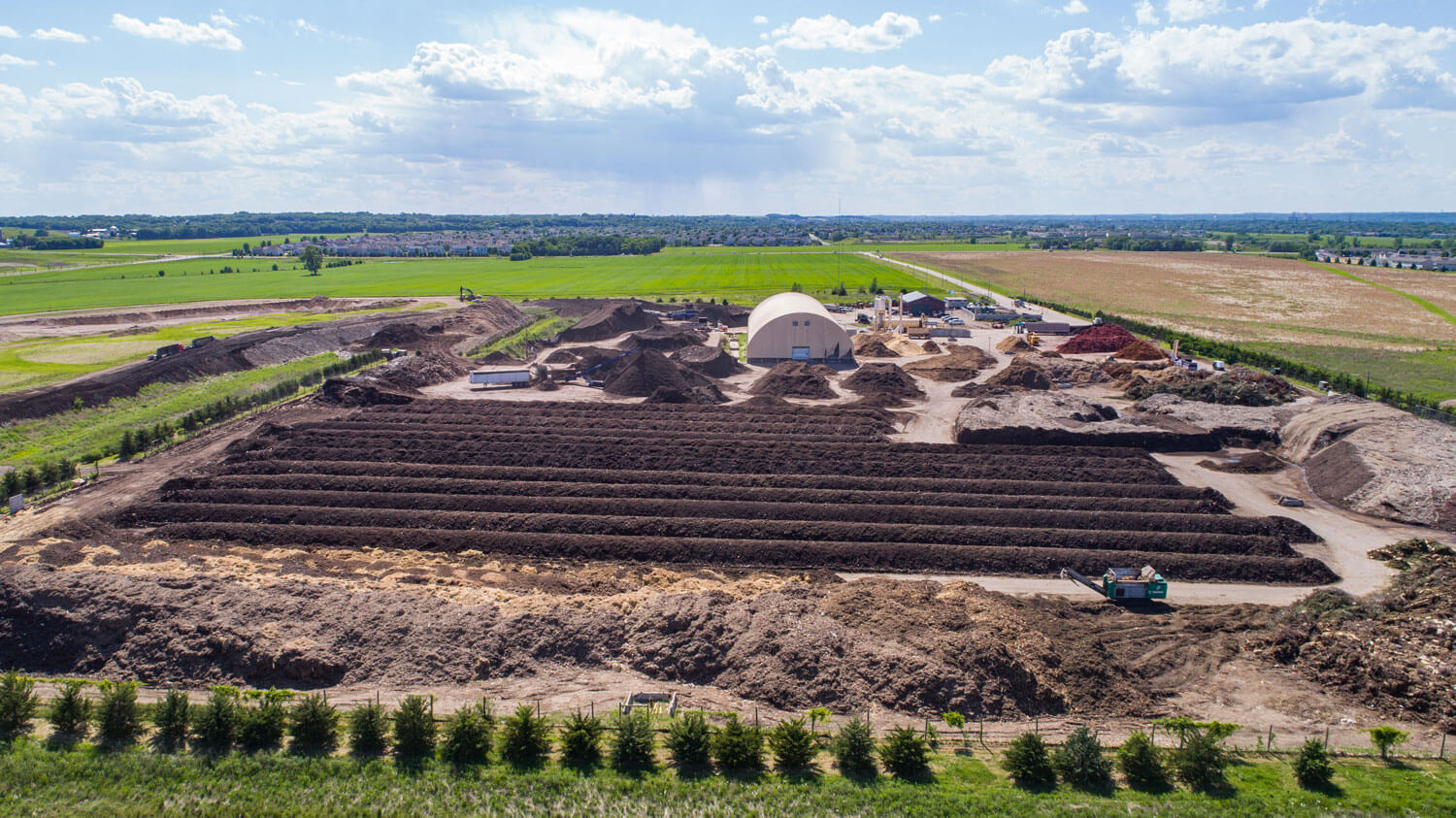
In recent years, states across the nation have been ramping up efforts to address environmental challenges, with a particular focus on waste management and sustainability. Minnesota stands out as a trailblazer in this regard, and our new facility, Dakota Prairie Composting, will be an important contributor to their goals.
In 2019, Minnesota unveiled its groundbreaking “Next Generation Energy Act,” which set forth a comprehensive framework for transitioning to a clean energy economy and combating climate change. Central to this legislation was the establishment of bold targets, including a commitment to reducing greenhouse gas emissions by 30% by 2025 and 80% by 2050, compared to 2005 levels.
“At Dakota Prairie, we’re recycling organics, so this facility will be different than your curbside recycling where you’re doing aluminum, glass, cardboard, and those types of things,” SMSC Operations Administrator Steve Albrecht said. “We’re also recycling food waste, yard waste, and other woody materials like branches, trees, and things like that.”
Albrecht said the facility will help Minnesota reach its goal of recycling 75% of the state’s waste by 2030 while protecting and enhancing the environment.
“Our existing facility right now, from 2013 to 2020, accounted for 23% of the organic material composted in the Twin Cities,” Albrecht said. “This new facility basically triples the capacity of our existing facility. It adds substantially more capacity, but it also helps the metro region’s goal of recycling 75% of all solid waste by 2030. That’s why it’s very critical to the area.”
Dakota Prairie Composting will help Minnesota achieve its goals in four ways:
- Waste Reduction: The metro area’s recycling rate has been hovering around 40% for the last several years. To increase this number to 75%, more organics recycling is needed. This entails a paradigm shift in waste management practices, emphasizing reduction, food recovery, and composting as primary strategies for minimizing waste generation.
- Composting Mandates: Recognizing the significant environmental benefits of composting organic waste, many Minnesotan cities and counties have implemented mandates to promote the diversion of food scraps, yard trimmings, and other organic materials from landfills. These mandates incentivize composting facilities to expand capacity and improve efficiency, thereby reducing methane emissions and enriching soil health.
- Partnerships and Innovation: MPCA’s Solid Wate Management Plan encourages collaboration between government, industry, and communities to foster innovation and drive progress toward sustainability goals.
- Education and Outreach: Effective waste management requires widespread public participation and awareness. To this end, Minnesota has invested in educational initiatives and outreach campaigns to inform residents, businesses, and institutions about the importance of waste reduction, recycling best practices, and the benefits of composting. Dakota Prairie Composting will be not only a leader in size and innovation, but also in education and community. Run by top experts in their field, our facility aims to be a go-to for resources and information.
Minnesota’s recycling goals present both challenges and opportunities for large-scale composting facilities. While the zero-waste goal and composting mandates place greater demands on infrastructure and operational efficiency, they also create a fertile environment for innovation and growth. By embracing the principles of sustainability, composting facilities like ours can play a pivotal role in advancing Minnesota’s environmental objectives while simultaneously contributing to local economies and community well-being.
Minnesota is paving the way toward a more resilient and sustainable future for generations to come. Our journey as a leader in sustainability is ongoing, but we’re committed to continuously improving our operations and making a positive impact on the environment and communities we serve.


